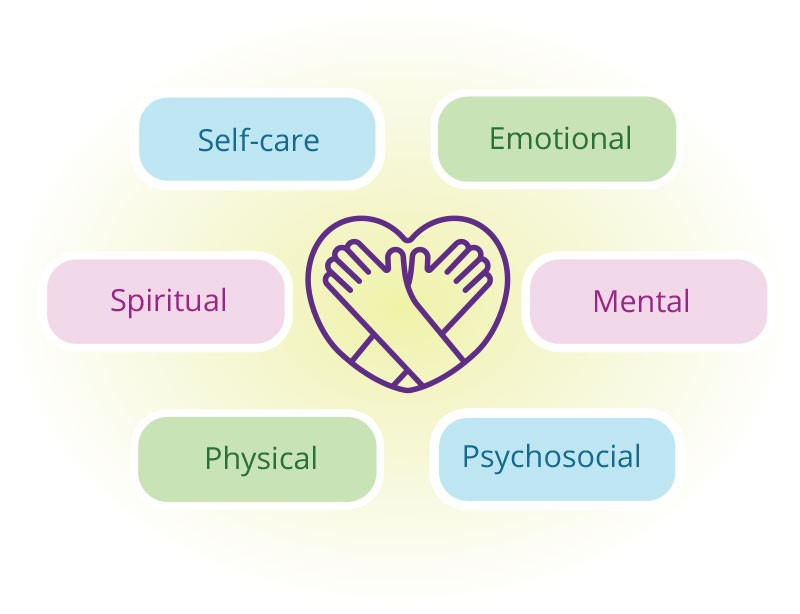Chapter 4: Coping with unrecognized grief
Encouraging resilience and self-care
The nurse practitioner told me that I'm resourceful, intelligent, responsible, and kind. That felt good to hear.
After I lost my baby at 26 weeks, I felt I had no defences, and I was unprepared when people asked questions like, “What was your labour was like?” In order to protect myself, I learned to keep a little basket inside where I would put remarks or questions that I wanted to disregard.
By figuring out what helps you to be calm and flexible, you can build resilience. This can help you to better cope, make the best of a difficult situation, and see stressors as a challenge rather than a threat. There are many books and websites that can teach you how to breathe, focus, and stay centred so that you can develop skills of self-regulation, self-awareness, mindfulness, and self-compassion.
Consider developing a self-care plan
In developing a self-care plan, include all aspects of your being.

You can find guides for self-care planning online, in local bookstores, or in libraries.
Considerations
If you are feeling stuck and don’t know where to start, consider seeing a counsellor or joining a support group. Ask your healthcare provider, spiritual advisor, or a trusted friend or family member to help you find resources. You can also search the internet for online or local resources.




